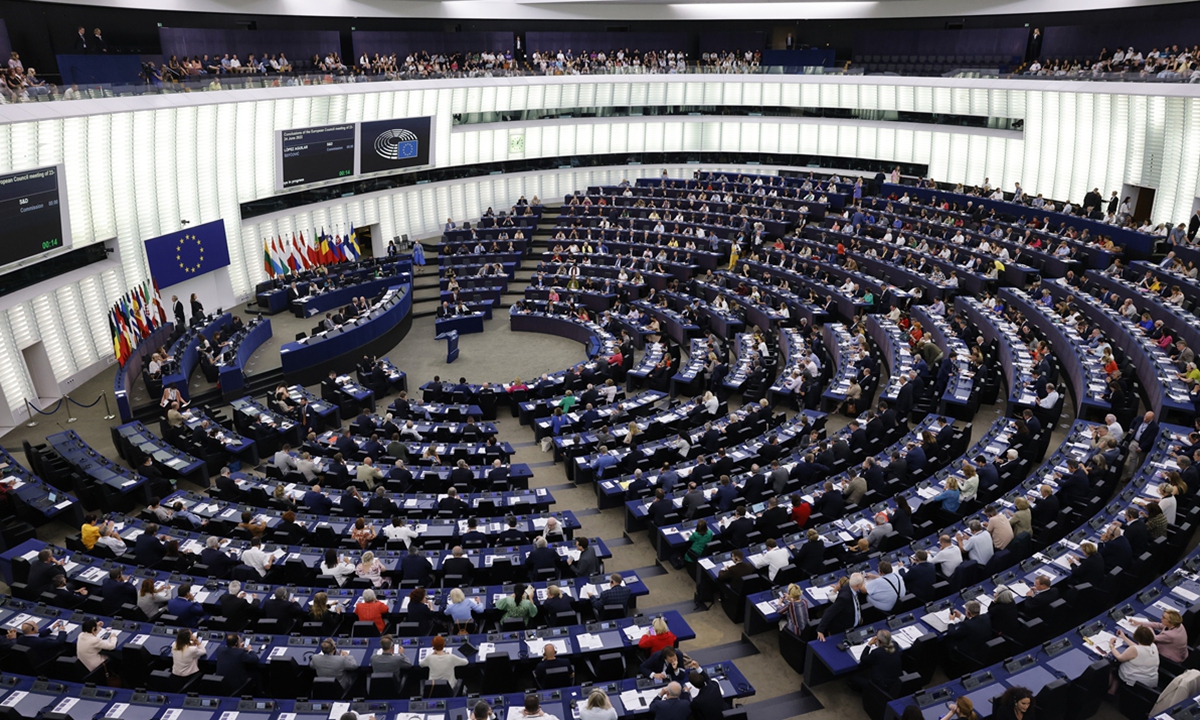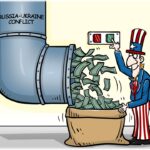Last week, Hungarian Prime Minister Viktor Orbán called for the European Parliament to be abolished. The reason is the scandal known as “Qatargate,” which relates to accusations of corruption which have rocked the European Parliament in recent weeks. Orbán proposed creating a new European Parliament, consisting of national delegates. “This guarantees greater oversight, accountability and credibility. Give control back to the Member States!” he said. His remarks have pushed the discussion on the reform of EU’s political and decision-making mechanisms.
As the legislative body among the three major institutions of the EU, the European Parliament should ideally play a role in promoting and optimizing policy formulation in EU politics. Its elected members should downplay the partial and other interests of specific countries, serving the common interests of the EU. However, the Qatargate scandal shows that politicians, political staffers, lobbyists, civil servants and even a vice president of the parliament, are suspected of receiving large sums of money and gifts from Qatar to influence decisions in the European Parliament. It exposes the reality that some countries and interest groups’ wield a secret and powerful influence on the European Parliament. As former MEP Michiel van Hulten said, “The Parliament is easily accessible and it has become an attractive ground for all kinds of lobbyists.”
Today, as the geopolitical situation is becoming tense and European politics is increasingly ideological, incidents involving infiltration and interference such as the Qatargate will greatly impact the sensitive nerves of EU institutions. The European Parliament is obligated to conduct a detailed investigation into it and formulate a corresponding transparent mechanism to prevent similar incidents from happening again. President of the European Parliament Roberta Metsola has promised to introduce new ethical rules and unveil “wide-ranging reform package” in the European Parliament.
However, it will be unrealistic to expect the European Parliament to make fundamental reforms. Like parliaments of Western countries, lobbying by various interest groups is a normal operation of EU-level legislative bodies. Enterprises and non-governmental organizations are not the only ones to influence legislators in the form of discussion and cooperation, many parliamentarians themselves are also keen to contact various lobbyists in order to seek policy influence, and even look forward to obtaining high-paying corporate consulting jobs through the “revolving door” mechanism. A reform may undermine the cheese of quite a few people.
Yet Orbán’s remarks represent the dissatisfaction of some people and member states which have become disillusioned with the parliament. The European Parliament is supposed to represent the voice of the people. But over the past years, a growing number of MEPs have been putting forward increasingly radical proposals and views on diplomacy, environment, human rights, and so on, in order to win eyeballs, making only limited contributions to resolving real problems of people’s livelihood issues and social problems.
On the other hand, MEPs are elected based on political support in their home countries. Excessively stressing so-called political correctness of the common interests rather than their own countries’ interests may, in some cases, run counter to the practical interests of certain member states.
At present, EU institutions and major powers are worried about the shortcomings of the EU’s decision-making efficiency and consistency, believing that it will put the EU at a disadvantage in the complex international situation and geopolitical games. Reforms of the EU’s political and decision-making mechanisms are regarded as the only way to realize “strategic autonomy” and promote in-depth development of European integration. However, there are still major disputes when reform is touched upon. Some hopes the decisions can be made unanimously. Some wish the majority can have the final say to raise efficiency.
From a historical perspective of European integration, the development of the EU as a political experiment in building a sovereign state association is a cyclical process of constantly encountering problems and carrying out institutional innovation and repairs. Can the current EU continue to turn opportunities into further development momentum? To a large extent, it depends on whether it can adhere to promoting peace and seeking development in the continent.
The author is a research fellow with the Institute of European Studies, China Institutes of Contemporary International Relations. opinion@globaltimes.com.cn













